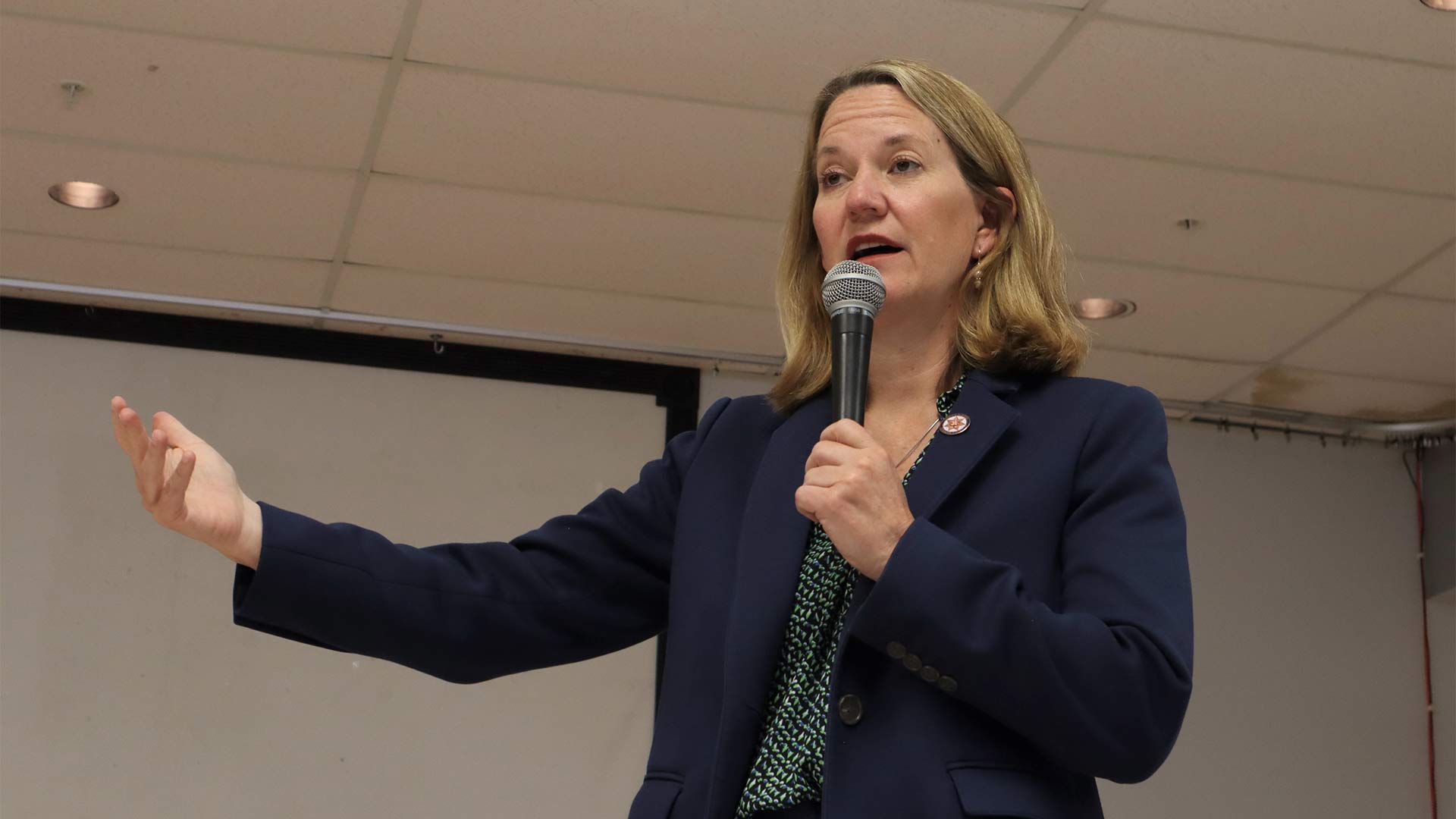 Arizona Attorney General Kris Mayes asked Cochise County residents to share their thoughts on the Kroger and Albertsons merger agreement at the Ethel Berger Center. July 26, 2023.
Arizona Attorney General Kris Mayes asked Cochise County residents to share their thoughts on the Kroger and Albertsons merger agreement at the Ethel Berger Center. July 26, 2023.
The Arizona Attorney General’s office has launched an investigation into the presence of lead-covered cables within state and federally regulated bodies of water and underground conduits.
To gather information on the matter, 200 letters have been dispatched to known telecommunications operators throughout the state including Verizon, AT&T and CenturyLink.
These letters request information on the type, location and length of cables present in companies’ inventories.
Attorney General Kris Mayes has specified three categories of cables under scrutiny: submarine, buried or above ground lead cables.
“What comes next is we will catalog the lead cables that they identify for us, if they refuse to comply with a letter we will consider our options for getting that information,” Mayes said.
Operators who have received these letters are given a 30-day window to respond.
Mayes further disclosed that her office plans to extend similar requests to companies operating in or having historical operations in states surrounding Arizona, particularly where lead cables may cross state borders.
Following this, the office will assess the toxicity of those cables, potentially enlisting the assistance of external counsel and experts.
Expressing concern over the potential risks posed by lead cables to the environment, water supplies and public health, Mayes highlighted that lead levels in such cables exceed safety standards set by the Environmental Protection Agency (EPA) for drinking water and soil.
Although the investigation is in its initial stages, a discovery of a lead-covered cable has been made in Mohave County, placed by the Bell Telephone Company of Nevada, in 1949.
“We know that there was a permit issued for this cable by the Army Corps of Engineers to cross the Colorado River with a lead-covered cable into Mohave County, here in Arizona, so we really want to try and figure out where that is precisely,” Mayes said. “We want to figure out whether it is in the water or above the water, and if it’s in the water, is it leaching into the water.”
A spokesperson for USTelecom, the national trade association representing the telecom industry said, "The U.S. telecom industry prioritizes the health, safety and environment of its communities and workers. We will continue to follow the science, which has not identified that lead-sheathed telecom cables are a leading cause of lead exposure or the cause of a public health issue."
The spokesperson also said that recent federal and state testing has reinforced this point, and that the industry remains committed to engaging with stakeholders, policymakers, regulators and agencies.

By submitting your comments, you hereby give AZPM the right to post your comments and potentially use them in any other form of media operated by this institution.